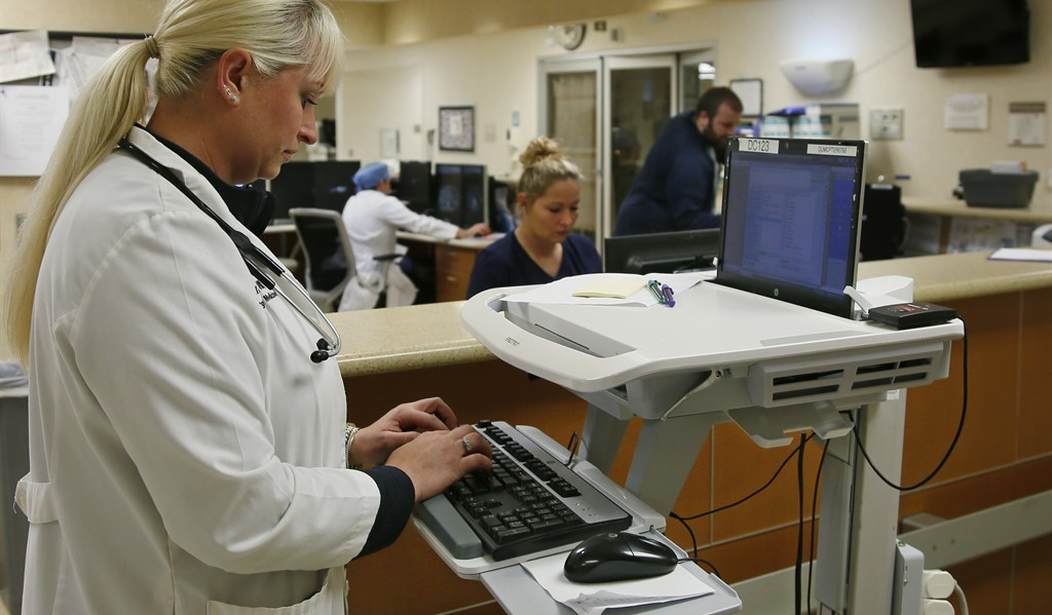According to new data from the Job Creators Network Foundation, six in 10 small businesses expect the cost of health insurance to increase for staff this year. The forecast is supported by estimates from financial services firm AON, predicting that healthcare costs for U.S. employers will rise by 6.5 percent to nearly $14,000 per employee.
In 2022, the Biden administration and its allies in Congress pulled a clever trick to mask part of the healthcare affordability problem with taxpayer dollars. Provisions included in the Inflation Reduction Act—which was signed into law in August—extended enhanced pandemic-era subsidies for Obamacare. In short, politicians used smoke and mirrors to hoodwink some Americans into wrongly believing healthcare costs are under control.
The money-moving scheme amounts to a temporary Band-Aid that does nothing to quell long-term inflationary pressures within healthcare. Costs are still rising at an alarming rate, which begs the question, why?
Broadly speaking, U.S. healthcare—characterized by Obamacare—is tangled in miles of government red tape, strict mandates, and billions of dollars in subsidies that pump easy money into an untransparent system. And when that mess meets the complex web of hospital networks, middlemen, and health insurers, the door is opened for costs to soar unchecked.
Chief among the problems are the middlemen of the drug supply chain called Pharmacy Benefit Managers (PBMs). These entities covertly leverage their considerable power as the doorkeepers between drugmakers and the consumer market to artificially inflate the cost of medicine at the expense of patients. The scheme pockets PBMs nearly $200 billion a year—money that should be passed along to patients at the pharmacy counter as savings.
Recommended
How mischievous is the middleman arrangement? Enough to receive bipartisan scrutiny—a rarity in the political sphere these days.
The Federal Trade Commission (FTC) has launched an investigation into PBMs, saying the entities “have enormous influence on which drugs are prescribed to patients, which pharmacies patients can use, and how much patients ultimately pay at the pharmacy counter.” In late October, the House Oversight Committee found that PBMs are limiting access to no-cost birth-control options, contrary to the intentions laid out under federal law. And last year, at least 18 states either passed or implemented PBM regulations to help lower drug costs.
With a strong consensus around the hazard posed by PBMs, what has the Biden administration and Congress concretely done at the federal level to address this middleman scheme thus far? Nothing. In fact, they’ve done the opposite.
As part of the same legislation that propped-up short term Obamacare subsidies, policymakers permanently nixed a Trump-era executive action that would have lowered drug costs for seniors. Nicknamed the rebate rule, the policy was set to force PBMs to pass along discounts already provided by drugmakers to patients accessing medicine through Medicare Part D.
Instead, the legislation—once again—prioritized short term electoral politics over meaningfully improving healthcare by instituting government price controls that will jeopardize innovation down the road.
While I recognize the political realities of a divided Washington will make major healthcare reform rooted in the free market all but impossible in 2023, there is bipartisan support to eat away at the edges. Addressing drug supply chain middlemen is one such opportunity. The 118th Congress—notably incoming HELP Committee Chairman Sen. Bernie Sanders (I-VT) and Ranking Member Sen. Bill Cassidy (R-LA)—should make holding PBMs accountable a priority.
Elaine Parker is President of the Job Creators Network Foundation, which supports free market healthcare reform through its policy framework HealthcareForYou.com.





















Join the conversation as a VIP Member